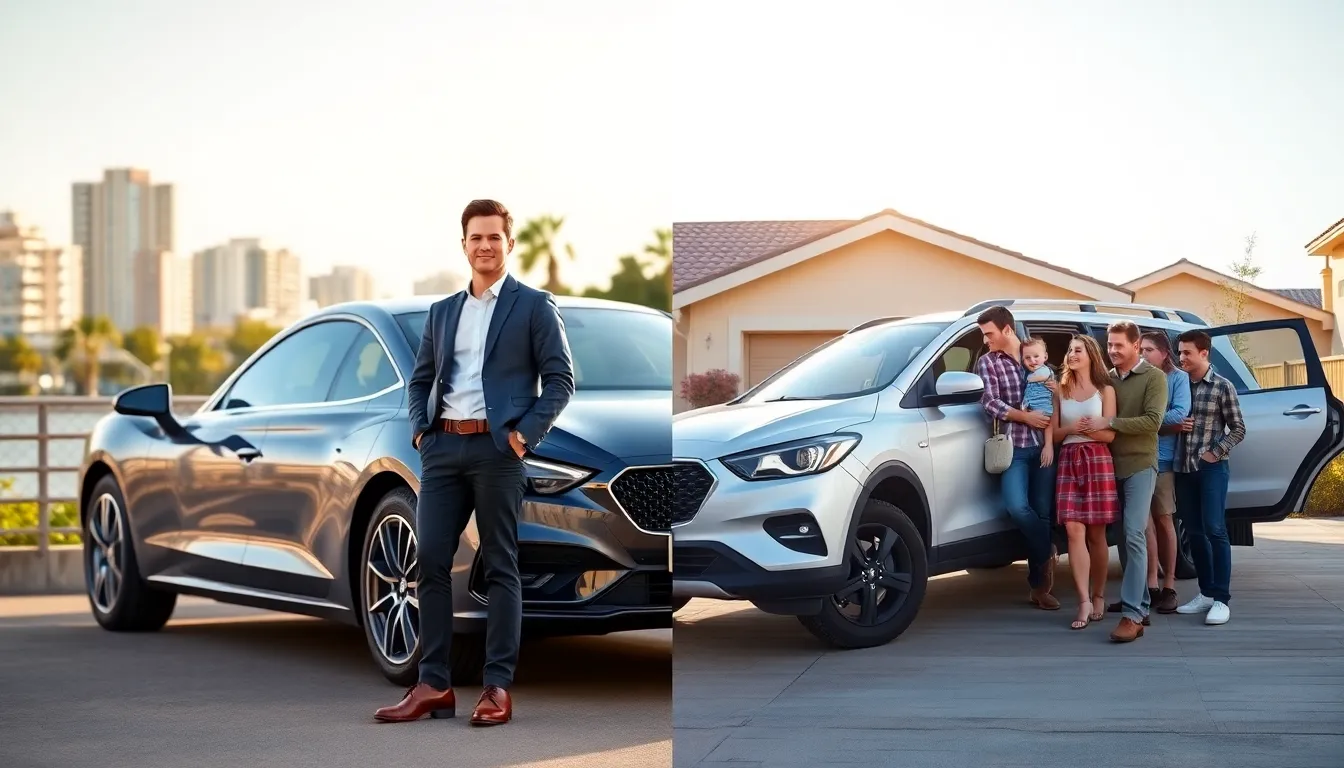When it comes to getting around, the age-old question of whether to rent or buy a car can feel as perplexing as deciding between peanut butter and jelly or chocolate and vanilla. Both choices have their merits, but picking one isn’t as simple as choosing your favorite dessert. Whether it’s flexibility or commitment you’re after, understanding the ins and outs of renting versus buying can save you headaches down the line, and, let’s be honest, no one wants a car-related headache.
Table of Contents
ToggleUnderstanding Your Needs

Before diving into the specifics of renting and buying, it’s essential to dissect personal car needs. How often does this vehicle need to be operational? Is it primarily for daily commuting, occasional road trips, or do we see it as a road warrior for the long haul? Those who need a car for just a few months might find renting the perfect fit, while someone seeking stability and ownership might lean towards buying. The duration of use, the type of vehicle needed, and future plans all play pivotal roles in this decision-making process.
Pros And Cons Of Renting A Car
Pros of Renting a Car
Renting offers flexibility that many find appealing. It’s a straightforward option for short-term needs. You avoid the costs associated with maintenance since rental companies handle that. If you like trying out different models or just need a vehicle on holidays, renting is a great choice. Plus, it may be less of a financial commitment, allowing you to spend your hard-earned cash on something else, like that vacation you’ve been putting off.
Cons of Renting a Car
But, renting isn’t without its downsides. Rental fees can stack up quickly, especially for prolonged periods. Limitations on mileage may cramp your style if you unexpectedly decide to take a spontaneous road trip. Also, there’s often less personalization involved: that bright pink seat cover you’ve always wanted? Not happening in a rental.
But if your needs are short-term, many consider these inconveniences a small price to pay for the luxury of flexibility.
Pros And Cons Of Buying A Car
Pros of Buying a Car
Owning a car often brings a sense of pride. You’re free to customize it, no need to worry if those neon rims will go against rental policies. It also creates long-term financial sense, particularly if the car is taken care of over the years. Plus, there are no mileage limits or hidden fees lurking in the shadows. It’s just you, your car, and open road ahead.
Cons of Buying a Car
But let’s face it: buying is a bit more like committing to a long-term relationship. The upfront costs can be quite heavy once you take into account insurance, maintenance, and registration fees. Depreciation hits quickly, meaning the moment you drive your shiny new vehicle off the lot, it loses value. Beyond that, there’s the long-term commitment attached, which may not suit those with ever-changing lifestyles.
Comparing Costs: Renting Vs Buying
When crunching the numbers, it’s crucial to look beyond just the price tag. Renting a car might seem cheaper monthly, but one must consider how often it’s needed. Daily rentals or long-term agreements can lead to surprising expenses that can easily eclipse a monthly car payment.
Conversely, while purchasing requires more upfront investment, the costs may balance out over time with no monthly payments and potential resale value at the end. It’s not just about how much you’re spending today: it’s about how much you could save, or lose, down the line. A thoughtful assessment of both financial options can illuminate which path makes the most sense for individual circumstances.
Long-Term Versus Short-Term Ownership
So, what are the long-term implications of each choice? For those who prefer short-term ownership, renting tends to be the more favorable option. The possibility of needing to switch to a different vehicle or avoid significant maintenance issues is appealing. This is especially relevant in today’s rapidly changing automotive landscape where new models are continually hitting the market.
On the other hand, those committed to long-term ownership often find the benefits of buying outweigh the initial costs. As vehicles tend to last longer now, investing in one presents a viable option for reliable transportation without the frequent cycle of change.
Additional Considerations
While the main points have been hashed out, some additional factors could tip the scales. Consider lifestyle changes, will a new job or family dynamic influence your vehicle needs? Environmental impact can also be a deciding factor: renting allows for opportunities to try out electric or hybrid cars without a major commitment. Don’t forget about insurance and financing rates. Younger drivers may find insurance rates can be particularly high, more reflection on ownership versus rentals may be necessary in such situations.








